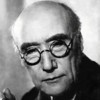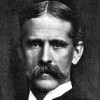Nothing is so silly as the expression of a man who is being complimented.
André Gide (1869-1951) French author, Nobel laureate
Journal (1906-02-13) [tr. O’Brien (1947)]
(Source)
Quotations about:
admiration
Note not all quotations have been tagged, so Search may find additional quotes on this topic.
None speak of the bravery, the might, or the intellect of Jesus; but the devil is always imagined as a being of acute intellect, political cunning, and the fiercest courage. These universal and instinctive tendencies of the human mind reveal much.
Lydia Maria Child (1802-1880) American abolitionist, activist, journalist, suffragist
Letters from New-York, # 34, 1843-01 “Woman’s Rights” (1843)
(Source)
People are egregiously mistaken if they think they ever can attain to permanent popularity by hypocrisy, by mere outside appearances, and by disguising not only their language but their looks. True popularity takes deep root and spreads itself wide; but the false falls away like blossoms; for nothing that is false can be lasting.
[Quodsi qui simulatione et inani ostentatione et ficto non modo sermone, sed etiam voltu stabilem se gloriam consequi posse rentur, vehementer errant. Vera gloria radices agit atque etiam propagatur, ficta omnia celeriter tamquam flosculi decidunt, nee simulatum potest quicquam esse diuturnum.]
Marcus Tullius Cicero (106-43 BC) Roman orator, statesman, philosopher
De Officiis [On Duties; On Moral Duty; The Offices], Book 2, ch. 12 (2.12) / sec. 43 (44 BC) [tr. Edmonds (1865)]
(Source)
(Source (Latin)). Alternate translation:
Those people therefore are highly mistaken, who think of obtaining a solid reputation by vain shows and hypocritical pretences; by composed countenances and studied forms of words: for true glory takes deep root, and grows and flourishes more and more; but that which is only in show and mere outside, quickly decays and withers like flowers; nor can anything be lasting that is only counterfeit.
[tr. Cockman (1699)]
But if any suppose, that they can obtain a stable reputation by pretences, empty ostentation, hypocritical conversation, and even artificial looks, they are extremely mistaken. True fame takes deep root, and extends its shoots. Every counterfeit appearance, like blossoms, quickly falls off; and no pretense can be lasting.
[tr. McCartney (1798)]
If there be those who think to obtain enduring fame by dissembling and empty show, and by hypocrisy, not only of speech, but of countenance also, they are utterly mistaken. True fame strikes its roots downward, and sends out fresh shoots; all figments fall speedily, like blossoms, nor can anything feigned be lasting.
[tr. Peabody (1883)]
It is a delusion to suppose that glory can be founded on dissimulation, vain ostentation, and studied words and looks. True glory strikes root and spreads, everything unreal soon falls like the blossoms, a lie cannot last.
[tr. Gardiner (1899)]
True glory strikes roots, and grows: ill-founded reputations, like flowers, soon wither, nor can anything last long which is based on pretence.
[ed. Harbottle (1906)]
For if anyone thinks that he can win lasting glory by pretence, by empty show, by hypocritical talk and looks, he is very much mistaken. True glory strikes deep root and spreads its branches wide; but all pretences soon fall to the ground like fragile flowers, and nothing counterfeit can be lasting.
[tr. Miller (1913)]
If anyone thinks he can attain lasting glory by mimicry, by empty shows, by pretense in his looks and his conversation, he is far from correct. Genuine glory puts down roots and even sends out new growth; any pretense dies down quickly, like fragile flowers. Nothing simulated can be long-lasting.
[tr. Edinger (1974)]
She was beautiful, but she was beautiful in the way a forest fire was beautiful: something to be admired from a distance, not up close.
Terry Pratchett (1948-2015) English author
Good Omens, 3. “Wednesday” (1990) [with Neil Gaiman]
(Source)
It is harder to avoid censure than to gain applause; for this may be done by one great or wise action in an age. But to escape censure a man must pass his whole life without saying or doing one ill or foolish thing.
David Hume (1711-1776) Scottish philosopher, economist, historian, empiricist
(Attributed)
(Source)
Quoted in The Home Circle (Jan 1855)
Whenever Richard Cory went down town,
We people on the pavement looked at him:
He was a gentleman from sole to crown,
Clean-favored and imperially slim.And he was always quietly arrayed,
And he was always human when he talked;
But still he fluttered pulses when he said,
“Good Morning!” and he glittered when he walked.And he was rich, yes, richer than a king,
And admirably schooled in every grace:
In fine — we thought that he was everything
To make us wish that we were in his place.So on we worked and waited for the light,
And went without the meat and cursed the bread,
And Richard Cory, one calm summer night,
Went home and put a bullet in his head.
When I was young, I admired clever people. Now that I am old, I admire kind people.
Abraham Joshua Heschel (1907-1972) Polish-American rabbi, theologian, philosopher
(Attributed)
(Source)
Quoted by his student, Harold S. Kushner, in When All You've Ever Wanted Isn't Enough, ch. 3 (1986). Also attributed (without citation) to Milton Steinberg and Oscar Wilde.
Variants:
- "When I was young, I admired clever people. Now that I am older, I admire kind people."
- "When I was young, I used to admire intelligent people; as I grow older, I admire kind people."
“Be careful not to do your ‘acts of righteousness’ before men, to be seen by them. If you do, you will have no reward from your Father in heaven.
“So when you give to the needy, do not announce it with trumpets, as the hypocrites do in the synagogues and on the streets, to be honored by men. I tell you the truth, they have received their reward in full. But when you give to the needy, do not let your left hand know what your right hand is doing, so that your giving may be in secret. Then your Father, who sees what is done in secret, will reward you.
“And when you pray, do not be like the hypocrites, for they love to pray standing in the synagogues and on the street corners to be seen by men. I tell you the truth, they have received their reward in full. But when you pray, go into your room, close the door and pray to your Father, who is unseen. Then your Father, who sees what is done in secret, will reward you.”
The Bible (The New Testament) (AD 1st - 2nd C) Christian sacred scripture
Matthew 6:1-6 (NIV)
(Source)
KJV: "Take heed that ye do not your alms before men, to be seen of them: otherwise ye have no reward of your Father which is in heaven. "Therefore when thou doest thine alms, do not sound a trumpet before thee, as the hypocrites do in the synagogues and in the streets, that they may have glory of men. Verily I say unto you, They have their reward. But when thou doest alms, let not thy left hand know what thy right hand doeth: That thine alms may be in secret: and thy Father which seeth in secret himself shall reward thee openly. "And when thou prayest, thou shalt not be as the hypocrites are: for they love to pray standing in the synagogues and in the corners of the streets, that they may be seen of men. Verily I say unto you, They have their reward. But thou, when thou prayest, enter into thy closet, and when thou hast shut thy door, pray to thy Father which is in secret; and thy Father which seeth in secret shall reward thee openly."
To be glad of life because it gives you to chance to love and to work and to play and to look up at the stars — to be satisfied with your possessions but not content with yourself until you have made the best of them — to despise nothing in the world except falsehood and meanness, and to fear nothing except cowardice — to be governed by you admirations rather than by your disgusts — to covet nothing that is your neighbors except his kindness of heart and gentleness of manners — to think seldom of your enemies, often of your friends, and every day of Christ; to spend as much time as you can in God’s out-of doors — these are the little guideposts on the foot-path to peace.
Henry Van Dyke (1852-1933) American clergyman and writer
“The Foot-path to Peace,” Tacoma Times (1 Jan 1904)
(Source)
Often shortened to: "Be glad for life because it gives you the chance to love and to work and to look up at the stars."
Among those whom I like or admire, I can find no common denominator, but among those whom I love, I can: all of them make me laugh.
W. H. Auden (1907-1973) Anglo-American poet [Wystan Hugh Auden]
The Dyer’s Hand and Other Essays, Part 7 “The Shield of Perseus,” “Notes on the Comic” (1962)
(Source)
If people knew how hard I work to get my mastery, it wouldn’t seem too wonderful after all.
Michelangelo (1475-1564) Italian artist, architect, poet [Michelangelo di Lodovico Buonarroti Simoni]
(Attributed)
The earliest attributions only go back to the Twentieth Century (e.g., 1929) in non-academic contexts. No original source is known.
A related attribution, regarding the Sistine Chapel -- "If you knew how much work went into it, you would not call it genius." -- only can be found in the Twenty-First century (e.g., August 2001).


















